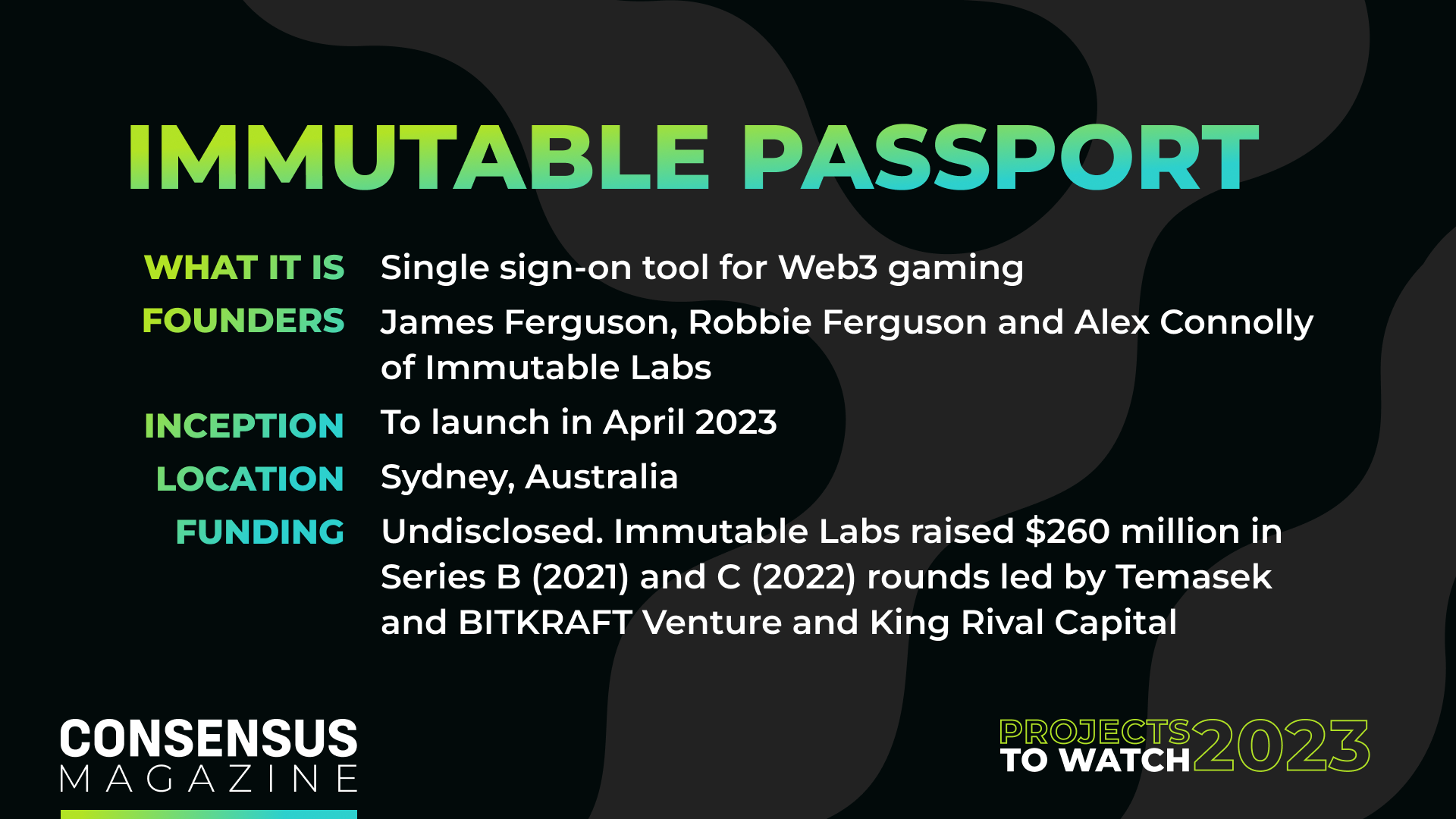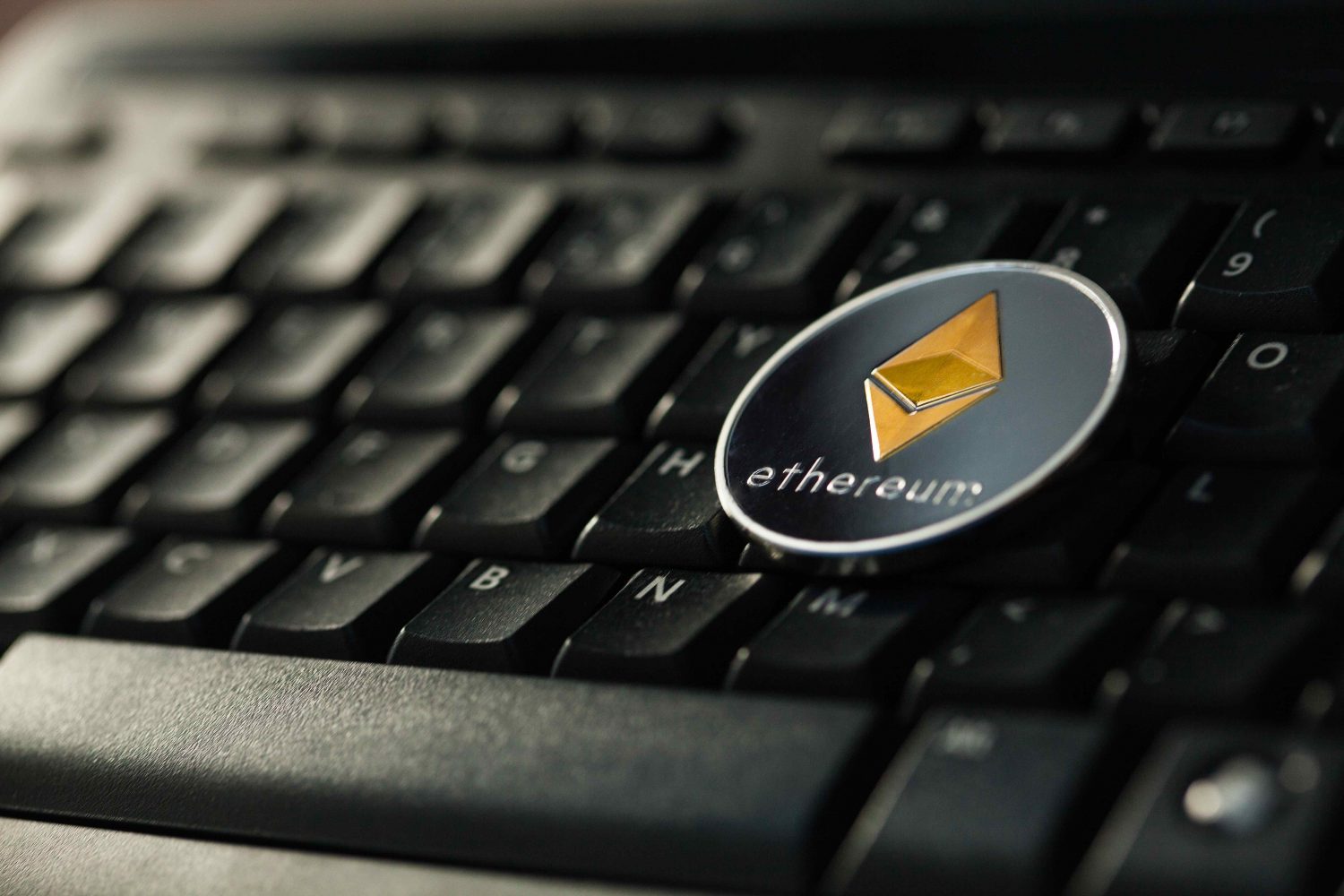Immutable Passport Opens Borders for Web3 Games
If you’ve been around Web3 at all, there’s been a long-standing theory that gaming will be the way to onboard the “next billion” users to crypto, or the metaverse or non-fungible tokens (NFT). Yet, despite hundreds of millions of dollars pouring into Web3 gaming and NFTs, there still hasn’t been a breakthrough moment. With the overall gaming industry hauling in over $184 billion in revenue in 2022 with 3.2 billion players, there’s a high incentive to tap into the huge revenue and audience around gaming.
There are a few roadblocks preventing the mainstream adoption of Web3 games to date: One is the high cost of entry for some games, which require NFTs to play. For example, play-to-earn game Axie Infinity required three “Axies” to begin, which at one point cost around $300. That’s a lot more than the $60 price tag for a hit AAA game like “The Last of Us.” And after Axie suffered a $625 million hack, people inside and outside crypto were rightly concerned about security in Web3 gaming.
Beyond the cost barrier, one of the most pressing obstacles Web3 gaming faces to onboarding those billion players is that it’s really hard to get started – and gaming is supposed to be fun.
There’s a high level of friction for Web3 gaming newbies. At the bare minimum, people currently need to set up a crypto wallet, but most likely also need to add funds in a specific cryptocurrency and/or buy non-fungible tokens (NFT) to play a Web3 game. And this process might need to be repeated for each and every Web3 game at the moment.
Realistically, as soon as someone sees they need to write down a 24-word seed phrase and keep it in a locked safe to proceed, the fun is gone and most likely, so are they. It’s game over. How can the metaverse make gaming onboarding less of a turnoff?

IMMUTABLE PASSPORT
Read profiles of all of the Projects to Watch 2023: Reclaiming Purpose in Crypto
The solution: Immutable Passport
Enter a passport project from Immutable Labs, a crypto unicorn from Sydney, Australia founded by James Ferguson, Robbie Ferguson and Alex Connolly in 2018.
The Immutable Passport is aimed at solving Web3’s roadblocks for adoption by offering easy onboarding and interoperability. The developers describe the idea as similar to a single-sign-on (SSO) system like Google where you can use one account to sign in everywhere, seamlessly.
“Passport is a self-custodial wallet, where users can sign in with just an email and one-time password – it will be a game changer for players and radically reduce user acquisition costs.” Immutable’s President and co-founder Robbie Ferguson said in a press release announcing the product.
Smartly, the Immutable team is aiming Passport not only at users but at game developers so that projects are working within an interoperable gaming universe from the early stages of development and won’t need to retrofit the Passport into the code. Ultimately end users will benefit from the seamless integration.
But while the end goal is a smooth, invisible, multi-game product, there were some bumps in the road and some valuable lessons learned along the way.
Ownership of in-game objects for all
Alex Connolly, co-founder and chief financial officer of Immutable, told CoinDesk the company’s origins started during the early days of NFTs as the founders traded on black markets for character skins, which are digital wearables for in-game characters and items sometimes referred to as “cosmetics,” for games such as CounterStrike and RuneScape.
“We immediately saw that at the moment, these [Web3] games are really shallow, but it should be possible to build better games. And if you had better games, and the items were tradable as NFTs, that would be a way better experience than one that we were used to when we were playing those games.” Connolly said.
Connolly said the founders were trading those items on the internet with other players of popular games on non-official sites. Almost no major games allow players to easily exchange or sell these in-game items.
“We had that realization: People should own items in games,” he said. That set the trio off on a journey that eventually led to a billion-dollar business, he continued. “We built games and where we ran into problems, we built technology to solve the problems that those games had run into. And I think those problems have changed over time. And that’s been the journey of Immutable overall.”
One of the first games they built taught them the expensive lesson that gameplay should live off-chain, after realizing the first game they built fully on the Ethereum blockchain cost about $100 a play.
“It definitely wasn’t fun enough to justify $100 fees,” Connolly said.
They focused on fun, scalability and highlighting the “why” of NFTs with their highly successful game Gods Unchained, which is a card game similar to Magic the Gathering, where the mechanics of owning and trading cards to build a deck is part of the DNA of the gameplay. The ownership of the items is key and easily understandable to the community.
“We think that one amazing thing that gaming can do for crypto adoption generally, is actually giving people an incentive to use the technology. Like people who don’t even understand anything about crypto can usually understand, ‘I want to trade in-game items,’” Connolly said. But the founders also noted some things builders have gotten wrong. One that stood out was an ecosystem that was forcing users to get a new wallet for specific apps and games.
“In general, that’s deeply confusing.” Connelly said, comparing the friction to “the idea of spinning up a bank account every time you go to a different restaurant. It would be clearly absurd. And I think Passport is our latest offering on that front. which is that it is incredibly important for games that we can give users a smooth and seamless onboarding.”
The missing piece: The breakthrough Web3 game
One challenge the project faces is a resistance from some bigger players to allowing true interoperability, with big publishers such as Activision Blizzard, Riot Games and Epic Games resistant to letting their intellectual property (IP) exit their AAA game universes and operate in another, which may not maintain their standards of graphics or gaming. There has also been pushback from the gaming community itself, with a 2022 survey finding that most gamers had negative feelings towards crypto and NFTs.
There have been some positive signs from the big brands, with Sony recently filing a patent to allow for gaming NFTs to be transferred between games, hardware and even non-PlayStation consoles like the Xbox.
But Immutable isn’t waiting for the gaming industry to change. Rather than target the existing games, Immutable is focused on fostering the next generation of builders with a $500 million fund for game developers. In the end, for mainstream Web3 gaming to really take off, there has to be a game that everyone wants to play and that breakthrough hit just doesn’t exist yet.
“Some games are massive successes, some games won’t. Our goal is to make sure that all those games have access to the tools to give themselves the best possible chance of success,” Connolly said.
Immutable is fostering this next generation of games by not only supporting the ease of onboarding that Immutable Passport provides to users, but also making sure that developers feel supported through their builds, launches and beyond, stressing that Immutable is “making a commitment to a several year development cycle and then a several year maintenance cycle.”
By funding a rich pipeline of games and enabling developers to create scalable and seamless experiences, the Immutable Passport will not only help get people playing but allow them to continue to grow in Web3 experiences.
“I think sometimes people forget that the user’s experience doesn’t stop with onboarding,” Connolly noted.
In other words, it’s great to have an easy onboarding experience to one game with Immutable Passport, but the whole idea is that to be a real success, it has to be about more than one game and one experience. To create a successful Web3 gaming ecosystem that attracts millions and then billions of users, it can’t be a one-and-done but a vibrant and variety-filled world that has rich possibilities and growth.
Connolly and the Immutable team hope they can solve the issues that currently plague new players, where they put some money into one marketplace or cryptocurrency and then don’t understand where those funds of NFTs are in another wallet or game. The disjointed nature for a user is “absolutely crazy” right now.
The company’s recent partnership with Polygon is another step showing their commitment to building “an Ethereum-centric gaming ecosystem that is poised to take Web3 mainstream and bring digital ownership to millions of people around the world,” said Robbie Ferguson in a statement.
Connolly added that the partnership would allow “game developers to be comfortable that they’re building in the right place.”
Edited by Jeanhee Kim.









